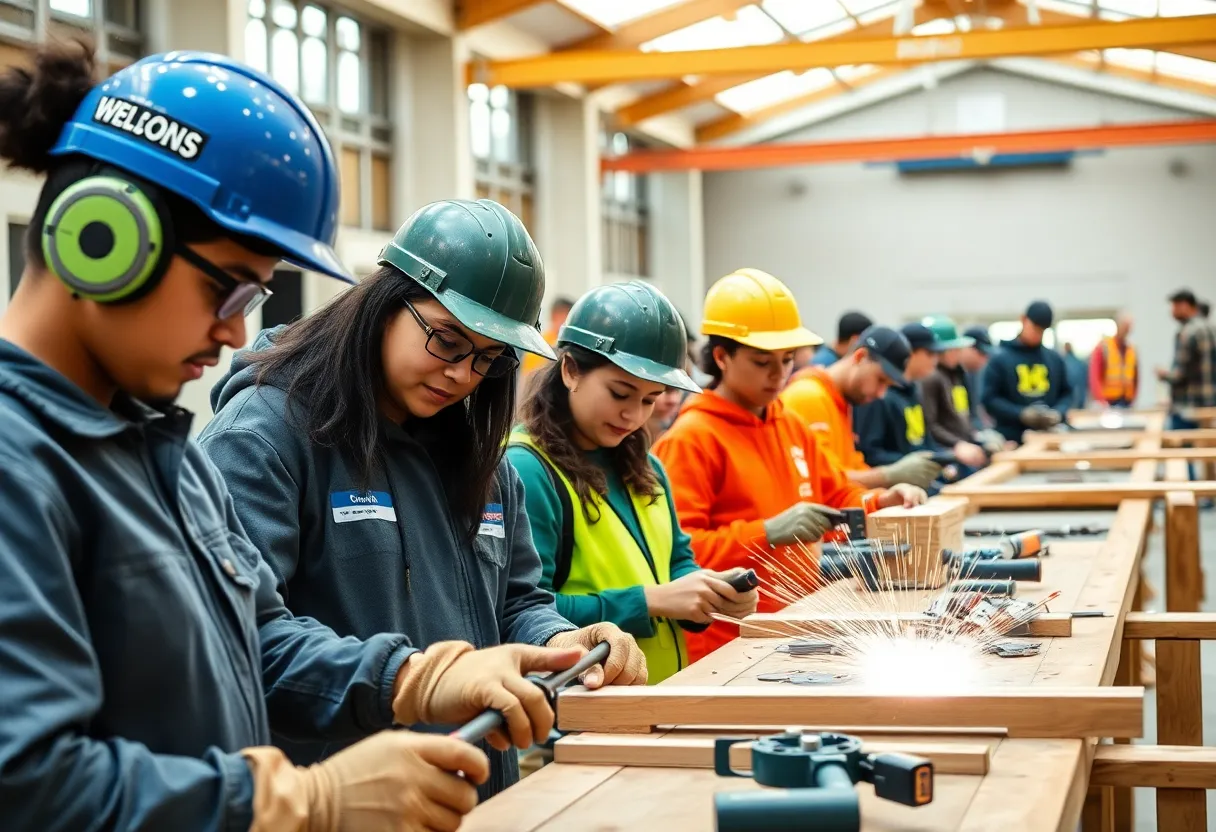News Summary
South Carolina technical colleges have experienced a 6% increase in enrollment this year, continuing a three-year growth trend despite national declines. Nearly 130,000 students are being served, driven by programs like SC WINS that offer financial support. These colleges are emerging as attractive alternatives to traditional universities, with successful transfer agreements enhancing educational pathways. Support from federal initiatives is further aiding accessibility, ensuring technical colleges remain key players in workforce development across the state.
Columbia, South Carolina – South Carolina technical colleges have reported a notable enrollment surge of 6% this year, marking the third consecutive year of growth amid the national trend of declining college enrollment. The South Carolina Technical College System now serves approximately 130,000 students across the state, highlighting a growing interest in practical and cost-effective education as the demand for skilled workers rises.
While total college enrollment across the United States has decreased by 8.5% since 2010, South Carolina’s technical institutions are bucking this trend. Several factors are contributing to this increase, including programs aimed at reducing the financial burden on students, such as the SC WINS program, which offers eligible students significant tuition assistance.
Technical colleges in South Carolina are increasingly recognized as a viable alternative to traditional four-year universities, with the potential to save students an estimated $25,000 by starting at a technical college and then transferring to a four-year institution. This financial appeal is especially pertinent in a climate where student debt remains a pressing concern; South Carolina ranks fifth nationally in terms of average student debt.
To facilitate student transfers, South Carolina technical colleges are actively forming innovative transfer agreements with several four-year institutions. These agreements allow students to transfer their general education credits as a cohesive package, known as full block agreements, thus streamlining the transition process. An example of this development is the new agreement between Horry-Georgetown Technical College and Converse University, established in 2024, which exemplifies the growing collaboration between technical and four-year college systems.
Recent statistics show that Horry-Georgetown Technical College has seen a remarkable 11.1% increase in enrollment for the spring 2024 term. This aligns with findings indicating that completing the first 30 hours of general education courses at a technical college can significantly expedite graduation timelines at four-year institutions. Agreements with notable universities like Clemson and the University of South Carolina are further enhancing these opportunities for a seamless educational pathway.
Additional financial support for community colleges has been bolstered by the federal American Rescue Plan, which allocated $601 million to support the ongoing need for reduced tuition during the pandemic. The SC WINS Scholarship Program is another significant initiative providing up to $5,000 per academic year for qualifying students, further bridging financial gaps and making technical colleges a more attractive option.
Particularly noteworthy is the transfer agreement between Florence-Darlington Technical College and Francis Marion University, which enables students to enter as juniors upon transfer. This is complemented by dual enrollment options for high school students, allowing them to earn college credits while completing their high school education. Additionally, Greenville Technical College has maintained a long-standing agreement with the University of South Carolina Upstate, facilitating resource sharing and collaboration.
The demand for skilled labor has prompted a $150 million budget proposal that includes substantial funding for capacity expansion at technical colleges. Institutions like Midlands Technical College and Greenville Technical College are set to receive $16 million each for building projects aimed at addressing seating limitations, particularly in high-demand programs such as welding and construction, where students are often waitlisted due to limited availability.
As recruitment efforts focus on addressing workforce shortages, local technical colleges are emerging as critical players in preparing students for careers in the trades and various industries. A freeze on tuition rates and the availability of scholarships have strengthened the attractiveness of technical education, resulting in heightened enrollment in programs like welding and construction as more students seek practical pathways to successful careers.
Deeper Dive: News & Info About This Topic
HERE Resources
University of South Carolina Ranked Top for International MBA
University of South Carolina’s IMBA Program Maintains Top Ranking
University of South Carolina Tops IMBA Rankings Again
University of South Carolina Leads in Graduate Program Rankings
Celebration of Business Excellence in Columbia, SC
Florence-Darlington Technical College Reintroduces Goz Segars
Florence Prepares for City Council Special Election
Florence County Planning Commission Approves New Homes in Quinby
Additional Resources
- SC Daily Gazette: New Tech School Investments
- Greenville Business Magazine: Joining Forces
- Bluffton Today: TCL President Named CEO of the Year
- Aiken Standard: Rotary Club of Aiken
- Columbia Business Report: SC Technical College System Foundation
- Wikipedia: Technical College
- Google Search: Technical Education in South Carolina
- Google Scholar: Technical College System
- Encyclopedia Britannica: Community College
- Google News: South Carolina Technical Colleges
Author: STAFF HERE FLORENCE WRITER
The FLORENCE STAFF WRITER represents the experienced team at HEREFlorence.com, your go-to source for actionable local news and information in Florence, Florence County, and beyond. Specializing in "news you can use," we cover essential topics like product reviews for personal and business needs, local business directories, politics, real estate trends, neighborhood insights, and state news affecting the area—with deep expertise drawn from years of dedicated reporting and strong community input, including local press releases and business updates. We deliver top reporting on high-value events such as the Florence Festival of Lights, Pee Dee Pride, and agricultural expos at the Florence Center. Our coverage extends to key organizations like the Florence Regional Chamber of Commerce and the Pee Dee Area Council of Governments, plus leading businesses in healthcare and retail that power the local economy such as McLeod Health and Pee Dee Electric Cooperative. As part of the broader HERE network, including HERECharleston.com, HEREColumbia.com, HEREGreenville.com, and HEREHiltonHead.com, we provide comprehensive, credible insights into South Carolina's dynamic landscape.





